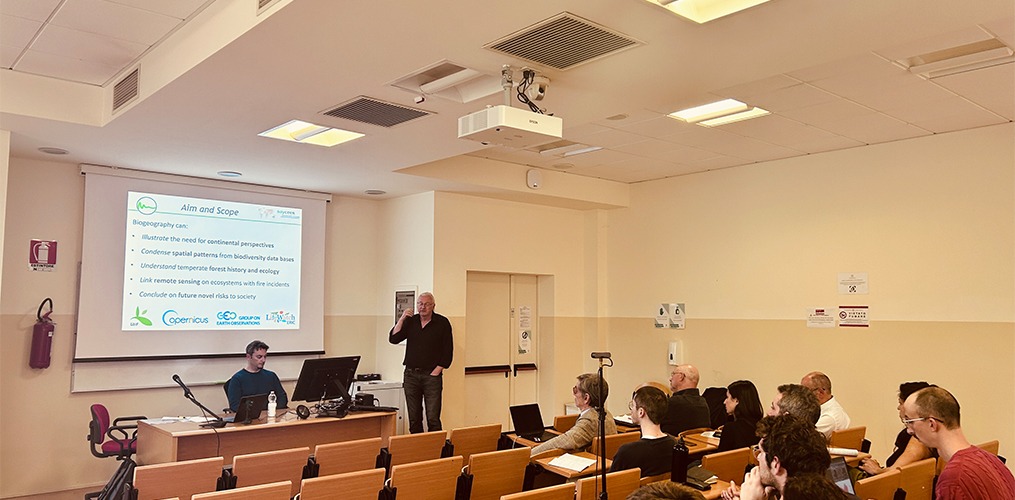
LifeWatch Italy, in partnership with the University of Bologna, organised a two-day workshop as part of the LifeWatch ERIC Thematic Service Workshop Series. The workshop, which took place from April 4th to 5th, brought together scientists and researchers to focus on biogeography and conservation strategies. The event aimed to facilitate in-depth exploration and collaboration and address the pressing challenges related to biodiversity preservation and habitat management.
The symposium began with a welcome speech by Alessandro Chiarucci from the University of Bologna, followed by Prof. Alberto Basset from the Università del Salento and LifeWatch ERIC Service Centre Director. Prof. Basset gave an in-depth overview of the LifeWatch ERIC Thematic Service Workshop, emphasising its objectives and significance in biodiversity research.
The workshop aimed at establishing a working group to promote collaboration among Common Facilities and Distributed Centres, updating the research needs mapping of national scientific communities regarding Thematic Services, and facilitating the participation of Distributed Centre research Institutions in Horizon Europe and other European and international projects. If you want to join the working groups, please visit our community.
Speakers and presentations
During the first day of the workshop, experts gathered to showcase their work and research. Michele Lussu, from the University of Bologna, presented the project of compiling comprehensive databases of orchids in the Mediterranean Basin. This project aims to comprehend their biogeography and contribute significantly to their conservation amidst mounting environmental challenges.
Prof. Ole R. Vetaas, from the University of Bergen, delivered a presentation on the intersection of biogeography and conservation biology. Drawing from his extensive research, Vetaas highlighted the urgent need to analyse migration patterns, identify barriers to species movement, and facilitate ecological connectivity in the face of rapid climate change and human encroachment on natural habitats.
Alessandro Chiarucci offered attendees a deep dive into the Italian Forest Vegetation dataset, comprising over 51,000 vegetation plots, a resource for scientists and policymakers alike in formulating evidence-based conservation strategies.
Prof.Carl Beierkuhnlein from the University of Bayreuth addressed the emerging risks of wildfires in European temperate forests. He outlined strategies to mitigate these threats, emphasising the crucial role of scientific research in informing effective conservation measures.
Following Vetaas’s discourse, Prof. Borja Jimenez-Alfaro of the University of Oviedo delved into alpine ecosystems’ diversity and distribution patterns. Drawing from his research, Jimenez-Alfaro provided a comprehensive analysis of the factors shaping these fragile habitats, offering valuable insights for conservation strategies.
You can download these presentations here.
The second day focused on research-related policies and strategies. Attendees participated in interactive sessions that aimed to establish working groups on biodiversity and define the scientific community’s role within the LifeWatch ERIC initiative.
The other workshops
The workshop created an opportunity for different fields to come together and work more innovatively towards biodiversity conservation in the future. This was the third workshop of this series, with three more to follow. To register for the upcoming ones, please visit our minisite.